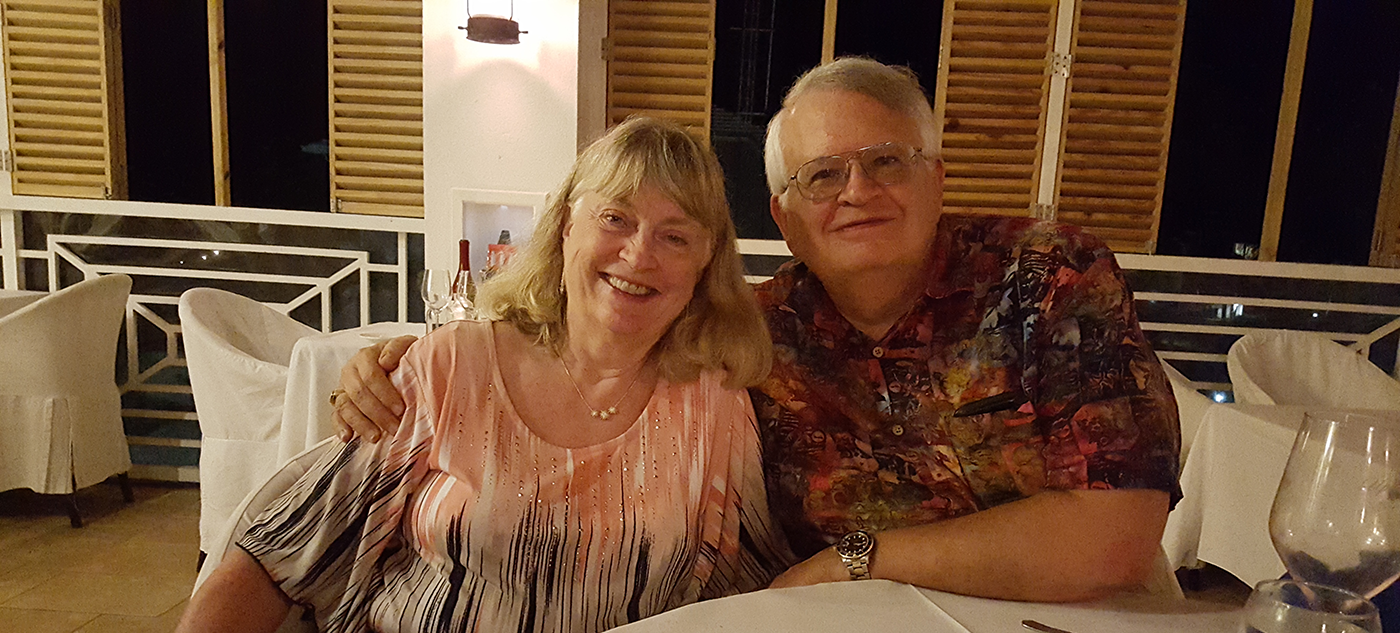
Q: How did you first find out about the Prechter Program?
A: Many years ago, I attended a conference in Los Angeles sponsored by the Depression and Bipolar Support Alliance. It was at this conference that I heard presentations by well-known mental health advocate and clinical psychologist, Dr. Kay Redfield Jamison, who herself has a bipolar diagnosis, and by the University of Michigan's own Dr. John Greden, who is the executive director of the Frances and Kenneth Eisenberg and Family Depression Center. He talked about the mission of the center – to detect depression and bipolar disorders earlier, treat more effectively, prevent recurrences and progression, counteract stigma, and improve public policy - which really resonated with me. That's where I first heard about the Prechter Bipolar Research Program. Of course, I had heard about Heinz Prechter before, since I have lived in the greater Detroit area for all my life. When he died in 2001, it was all over the news. However, nobody knew about his struggles with mental illness. Upon my return to Detroit, my husband, Jerry, and I decided we wanted to be a part of the isenberg Family Depression Center's efforts.
Q: What motivated you to become involved with the Prechter Bipolar Research Program?
A: In our family, we have many members who live with mental illness. Several of them have bipolar disorder/depression so we know fist-hand how hard this disease is on an individual and how it really affects the whole family. I have seen the daily struggles my loved ones are faced with, the different medication regimens they have undergone throughout the years, and I know how hard it is to find balance in a life with bipolar disorder. I have witnessed first-hand family members who have tried to self-medicate with alcohol/drugs, who have considered or tried to end their suffering with suicide, and who have been faced with the stigma that surrounds those dealing with mental illness. But bipolar disorder is a physical illness as well, as the brain is part of our physical makeup. It deserves just as much attention as other debilitating diseases, such as cancer or cardiovascular disease, with equality in funding and research. In addition, as an elementary school teacher, I worked with children who showed early signs of depression/bipolar which affected their success in school. I wanted teachers to be made better aware of how they could help these children as they made their way through the educational system.
Q: How has your family dealt with these challenges?
A: Jerry and I believe that it is so important for people to have a strong support network of family members and friends. Loved ones who listen to them and are there in times of stress and times of need make all the difference! I've learned that it's imperative to be open about your challenges, to talk about your feelings and let people know what you are going through, and, conversely, to really seek to understand the other person and put yourself in their shoes. It is also helpful when the person with the mental illness is proactive about their treatments and therapy, and really engaged in their recovery. Being an active participant makes a big difference, and educating yourself is paramount. Finally, I have come to know that pets can really have a positive influence on someone's well-being. The fact that they are nonjudgmental and give unconditional love can make so much difference in the life of someone dealing with a chemical imbalance.
Q: As a donor to our research program, what gives you the most hope?
A: Jerry and I are supporting this research because we believe that it is so urgently needed. Down the line, when research advances are made and better treatments have been found, things will be easier for people who have bipolar disorder. They will enjoy a better quality of life. I am especially interested in the research project where you use cell phones to analyze participants' voice patterns, in order to detect changes in their mood. I know from experience that I can tell in my own loved ones' voices when they are not doing well. I am also very excited about the stem cell work that's being done – this is cutting-edge science that will have a huge impact for generations to come. All this contributes to the optimism my husband and I feel about the future for our family and anyone else dealing with this problem.
